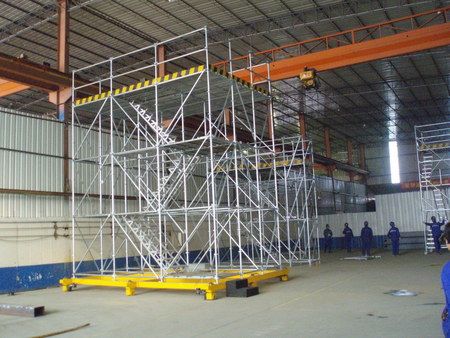Nov . 30, 2024 21:37 Back to list
formwork in civil engineering companies
Formwork in Civil Engineering Companies A Comprehensive Overview
Formwork is an essential component in the field of civil engineering, serving as a temporary or permanent mold into which concrete is poured to shape structures. It plays a crucial role in ensuring that concrete maintains its desired form and integrity during the curing process. As civil engineering projects grow in complexity and scale, understanding the various types of formwork, their applications, and their impact on project efficiency is vital for engineering companies.
Types of Formwork
Formwork can be broadly categorized into several types, each with its own set of advantages and disadvantages.
1. Timber Formwork This is one of the oldest types of formwork and is made from wooden planks. While it is relatively inexpensive and easy to work with, it is not very durable and can only be used for a limited number of pours.
2. Steel Formwork Steel formwork is known for its strength and durability. It can be reused multiple times, making it a cost-effective option for large projects. However, its initial cost is higher than that of timber.
3. Aluminum Formwork Lightweight and easy to handle, aluminum formwork is also reusable and offers a high level of precision. It is particularly popular in high-rise construction due to its strength and efficiency.
4. Plastic Formwork This is a newer option that is gaining popularity due to its lightweight nature and ease of handling. It is resistant to corrosion and chemicals, making it suitable for various environments.
5. Jump Formwork Primarily used in the construction of tall structures like towers, jump formwork can be raised vertically as the structure grows. This type is efficient for repetitive floor plates and allows for quick cycling between pours.
Importance of Formwork
The importance of formwork in civil engineering cannot be overstated. Firstly, it is crucial for achieving the desired shape and surface finish of concrete elements. A well-constructed formwork system can provide a smooth finish, reducing the need for additional finishing work.
formwork in civil engineering companies

Secondly, formwork impacts the speed of construction. The more efficiently a formwork system can be assembled and dismantled, the quicker the construction project can progress. This efficiency can lead to reduced labor costs and timely project delivery.
Moreover, the choice of formwork can affect the safety of a construction site. Properly designed and maintained formwork systems contribute to the overall structural safety during the concrete curing phase, minimizing the risk of collapses or failures.
Innovations in Formwork Technology
In recent years, the civil engineering industry has witnessed significant innovations in formwork technology. Advanced materials, such as high-performance composites, are being explored to create lighter and more durable formwork solutions.
Digital technologies, such as Building Information Modeling (BIM), are also playing a transformative role. BIM allows engineers to create detailed simulations of formwork systems, optimizing design and assembly processes. This leads to a reduction in waste and improved accuracy in dimensions.
Additionally, the advent of modular formwork systems enables engineers to quickly adapt to different design requirements. These systems can be reconfigured for various types of structures, further enhancing efficiency.
Challenges and Considerations
Despite the advancements, several challenges remain. Economic fluctuations can impact the cost of materials used for formwork. The need for skilled labor to install and maintain these systems is also critical, especially as construction projects become increasingly complex.
Furthermore, sustainability considerations are becoming more prominent. Engineers and contractors are seeking environmentally friendly formwork solutions that minimize waste and utilize renewable materials.
Conclusion
In conclusion, formwork is a foundational element in civil engineering projects, crucial for achieving structural integrity, efficiency, and safety. With various types available, engineers must carefully select the appropriate formwork system based on project requirements. As technology continues to evolve, the future of formwork in civil engineering looks promising, with innovations aimed at improving performance while also addressing economic and environmental concerns. Understanding and effectively utilizing formwork can significantly contribute to the success of civil engineering companies in their projects.
-
Premium Ringlock Scaffolding | China Manufacturer & Supplier
NewsAug.19,2025
-
Efficient Table Formwork for Fast Slab Construction & Reusability
NewsAug.18,2025
-
Timber Beam H20 Formwork & Shuttering - Durable & Reliable
NewsAug.17,2025
-
Timber Beam H20: Premium Formwork & Shuttering Solutions
NewsAug.16,2025
-
Premium H20 Timber Beam for Formwork & Slab Shuttering
NewsAug.15,2025
-
China Single Sided Wall Formwork: Fast, Flexible Solutions
NewsAug.14,2025